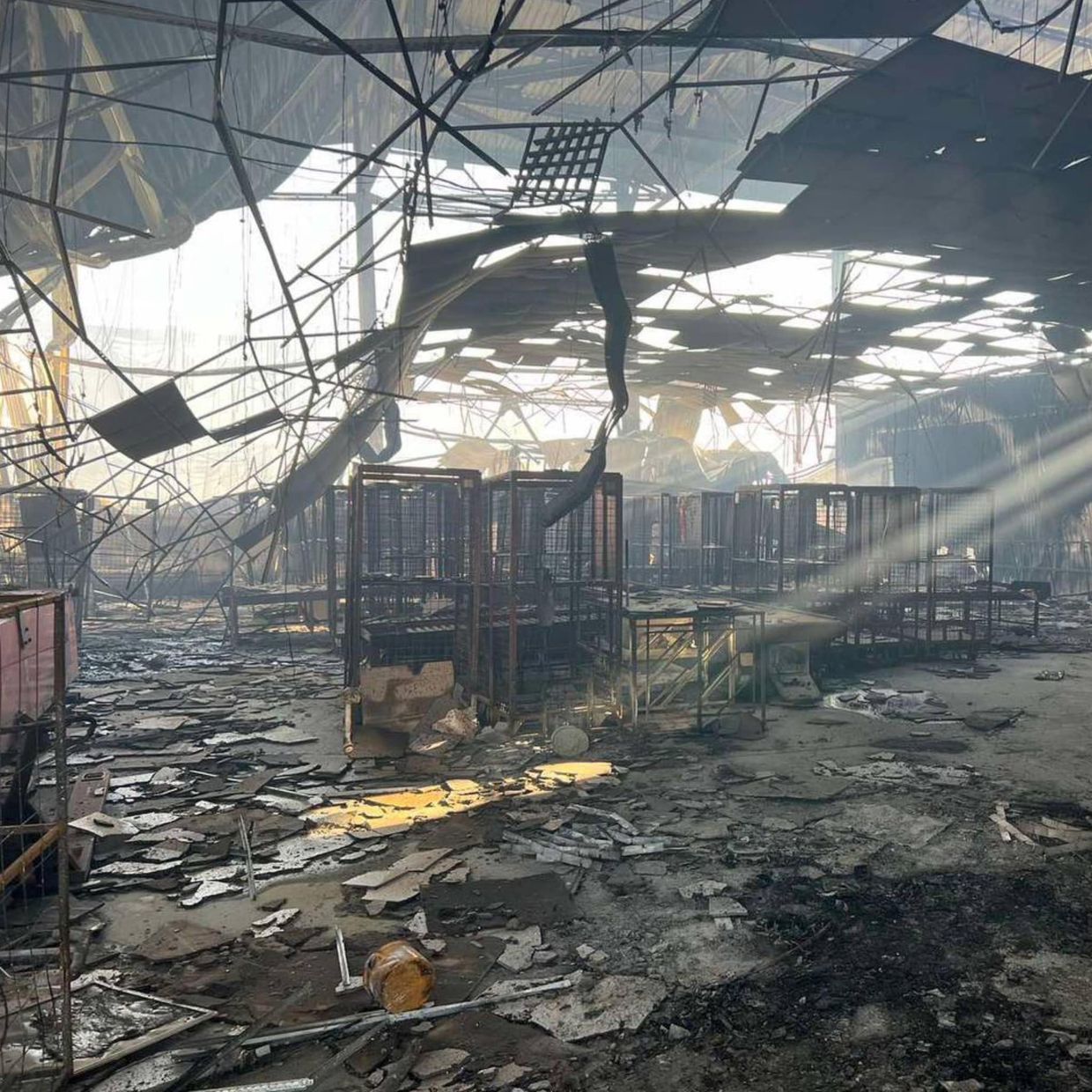Daly Flyer - May 2, 2024
A voice of Ukraine to the West

Russian attack on Kharkiv Oblast town injures 7 children
Russian forces attacked the town of Derhachi in Kharkiv Oblast on May 2, injuring at least eight people, including seven children, Governor Oleh Syniehubov reported.
The northeastern Kharkiv Oblast, due to its proximity to the front line and the Russian border, frequently endures Russian attacks, with civilian infrastructure often targeted.
Russian troops used two UMPB D-30SN glide bombs, hitting areas near the town's sports complex and residential houses, according to the Kharkiv Oblast Prosecutor's Office. Preliminary reports indicate that the injured include seven children between the ages of nine and 15 (six boys and a girl), and a 76-year-old man. Additionally, an eight-year-old boy suffered from shock.
Syniehubov mentioned that "two children suffered light injuries to their limbs, while four sustained moderate injuries. All the victims were hospitalized." The governor emphasized the severity of the attacks and the impact on civilians, especially children.
Derhachi is located about 12 kilometers (7.5 miles) northwest of Kharkiv's city center and around 45 kilometers (28 miles) south of the Russian border.
Russia has recently intensified its attacks against Ukraine's second-largest city, causing multiple casualties and extensive damage to Kharkiv's energy infrastructure. This latest attack highlights the ongoing risks faced by civilians in Kharkiv Oblast as the conflict continues.
Macron says he would consider sending troops to Ukraine in case of Russian breakthrough, Ukrainian request
French President Emmanuel Macron indicated that he would consider sending French troops to Ukraine if there was a significant Russian breakthrough at the front lines or if Ukraine specifically requested military assistance. This statement, made during an interview with The Economist published on May 2, suggests a possible shift in France's approach to supporting Ukraine in its conflict with Russia.
Macron emphasized that these conditions do not currently exist. He underscored the significance of Russia's invasion of Ukraine, describing it as "existential" for France and the rest of Europe. Macron reiterated that if Russia were to win in Ukraine, it would jeopardize security throughout Europe.
While Kyiv has not requested Western troops, it has consistently sought increased arms supplies to aid its soldiers in resisting Russian aggression. Macron also drew a parallel to France's prior involvement in Africa's Sahel region, where French troops were sent in response to a request for assistance.
Macron highlighted that Europe should not always rely on the United States for defense and should work towards self-sufficiency in security. This aligns with his broader advocacy for European defense, promoting increased defense production and military support for Ukraine.
Macron's interview with The Economist occurred just before an expected visit by Chinese President Xi Jinping to France in May. Macron intends to use this opportunity to persuade Xi to leverage his influence over Russian President Vladimir Putin to seek an end to the war in Ukraine.
In recent months, Macron has been vocal about the need for Europe to take a more significant role in its defense, advocating for greater military support for Ukraine and strengthening Europe's defense industry. These comments reflect a growing recognition of the strategic importance of the conflict in Ukraine and the broader implications for European security.
Russians who left abroad increasingly return home, boosting economy
An increasing number of Russians who left the country after the full-scale invasion of Ukraine are returning home, largely due to difficulties with residence permits and employment abroad, according to a Bloomberg report published on May 2.
Approximately 1 million Russians left the country following the onset of the war, either because they opposed the invasion or feared mobilization. However, as the conflict continues into its third year with no end in sight, many Russian expatriates are encountering challenges with securing extended residency abroad or facing obstacles in running businesses, leading some to return to Russia.
Russia claimed in June 2023 that half of those who fled during the early days of the war had returned. Finion, a Moscow-based relocation firm, estimated that about 40%-45% of those who left in 2022 have returned, providing evidence to support Russia's narrative that this reflects backing for President Vladimir Putin's policies.
Moscow is actively trying to attract specialists, particularly in the IT sector, to mitigate the brain drain caused by the initial mass exodus. This "reverse migration" has contributed significantly to Russia's economy. According to Bloomberg Economics, it has likely added between one-fifth and one-third to Russia's 3.6% annual economic growth in 2023.
While the returning workers make up only about 0.3% of the total employed workforce, the impact on the economy is notable, indicating the value of the expatriates' skills and activity.
Meanwhile, Western countries and their partners continue to impose economic sanctions on Russia in an attempt to limit its capacity to wage war against Ukraine. Despite these pressures, the return of expatriates underscores the complex dynamics that can influence Russia's economic resilience and political landscape during the ongoing conflict.
Russian attack on Odesa postal depot destroys 15.5 tons of shipments

A Russian ballistic missile attack on a postal depot in Odesa on May 1 caused significant damage, destroying 15.5 metric tons of shipments valued at nearly 3 million UAH (approximately $76,000), as reported by Nova Poshta, Ukraine's largest privately-owned parcel delivery service, on May 2.
The attack occurred around 10 p.m. local time, soon after an air raid alert was triggered in the Odesa region. Photos and videos shared on social media and by the State Emergency Service showed a large warehouse engulfed in flames following the attack.
Nova Poshta mentioned that Russia claimed the warehouse was being used to store weapons. However, the attack devastated a vast number of parcels, totaling 904 shipments, including items from online stores, appliances, children's toys, pet supplies, medicines, and personal packages sent by relatives.
The company assured that the costs of the destroyed parcels would be compensated. Despite the destruction, none of the 18 employees working in the depot at the time were injured, as they had taken shelter in a bomb shelter, according to Volodymyr Popereshniuk, a co-owner of Nova Poshta. However, the attack left 14 people injured.
This wasn't the first time Russia targeted a Nova Poshta facility. In October 2023, a Russian strike hit a Nova Poshta depot in the village of Korotych in Kharkiv Oblast, killing seven people and injuring over 10 others.
In response to the recent attack, Popereshniuk announced that Nova Poshta would enhance its safety measures by installing additional bomb shelters in its depots. This step underscores the ongoing risks faced by Ukraine's civilian infrastructure and businesses as the conflict with Russia continues.

